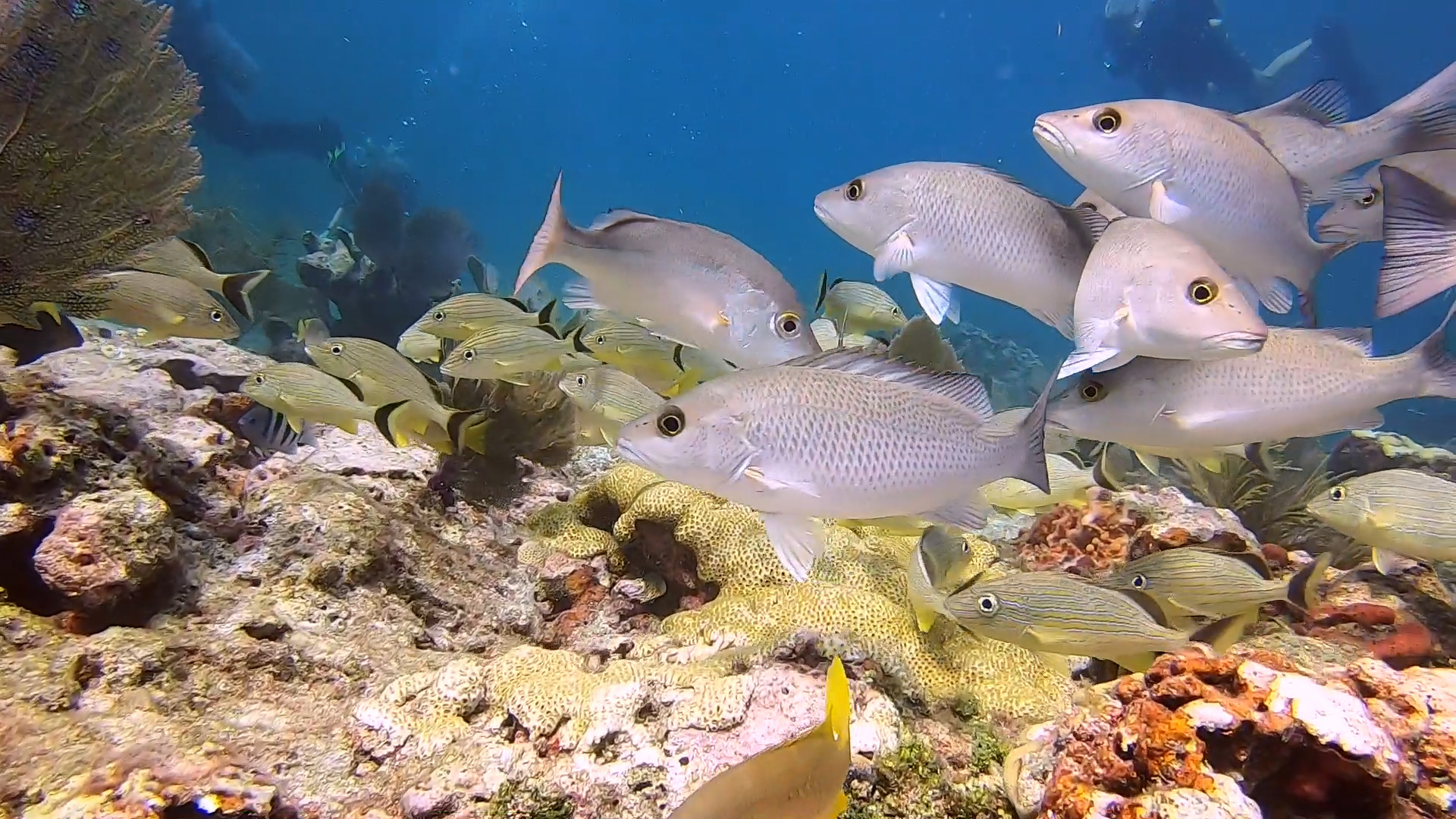TNC Florida Launches Initiative to Protect Snapper and Grouper Fisheries
New “Deck to Depth” program encourages the use of descending devices to support healthy fisheries and marine ecosystems.
Media Contacts
-
Fran Perchick
The Nature Conservancy
Phone: 561-328-9221 x205
Email: fran.perchick@tnc.org
TNC announced the launch of a new program to support healthy snapper and grouper fisheries in Florida and across the region’s waters. The new Deck to Depth program will drive collaboration with recreational anglers, captains and other stakeholders across the Sunshine State to promote proper release practices and better data collection.
With more fishing activity than any other state, Florida is the recreational fishing capital of the United States. Its waters connect the Atlantic, Caribbean and the Gulf, and the health of fish populations here have impacts on the waters, recreation and economies across the broader region. Stewardship of popular fish species is a critical and effective way to support robust oceans.
TNC’s Deck to Depth program supports the 55 species of snapper and grouper that are of vital importance to Florida’s coastal ecosystems and recreational anglers. These species are challenged by overfishing and are at great risk of barotrauma if not released properly by anglers.
Barotrauma—similar to the bends in human divers—occurs when a fish is pulled up to the surface from the bottom, or near the bottom of the ocean, causing compressed gases in its body to rapidly expand. This can be potentially fatal if the fish is not returned quickly to the ocean’s depths when released by anglers. The use of descending devices—tools that return fish to safe depths after being caught—helps to reduce or reverse the effects of barotrauma.
The use of descending devices significantly increases a released fish’s chance to survive, reproduce and support a healthy population and is a tangible, simple and effective way that anglers can have a positive impact on fish populations.
“The sustainability of our fisheries is essential not only to our marine ecosystems; it is crucial to ensuring long-term food supply and the recreational and economic well-being of Florida,” said Temperince Morgan, executive director of The Nature Conservancy in Florida. “Helping the snapper and grouper species recover can ultimately result in less regulation, longer fishing seasons, a healthier ocean and fish populations robust enough to support both recreational and commercial fishing.”
Snapper and grouper are deep-water fish, making them especially vulnerable to barotrauma. The South Atlantic Fishery Management Council, the Gulf Council and the Florida Fish and Wildlife Conservation Commission have stressed the urgent need to address the issue of barotrauma, which can result in mortality rates as high as 70% of all fish caught and improperly released for some species.
“The use of descending devices is critical to protecting our popular snapper and grouper fisheries and, by extension, the biodiversity of our waters,” said David Moss, fisheries manager for The Nature Conservancy in Florida. “I am a lifelong avid angler myself and cannot think of a better partner than the fishing community to help us raise awareness about the benefits of descending devices. Every fish safely returned from the deck of your boat to the depths of the ocean is another fish that may live to fight another day and spawn to help increase the population, supporting a sustainable fishery.”
TNC will conduct outreach to diverse stakeholders within the recreational fishing community and industry to raise awareness about descending devices and encourage the use of these tools. This includes engaging with marine influencers who can broaden the reach of the Deck to Depth program.
In addition to providing technical guidance and encouraging the use of descending devices, TNC is enlisting anglers in Florida and South Carolina to complete surveys that provide information to help steward the species, including catch-and-release practices and the current use of descending devices, the survival rates of snapper and grouper species in discarded catch, and other factors that affect the long-term sustainability of these fisheries.
TNC continues conservation efforts beyond Florida waters with a focus on ecosystem-wide challenges such as climate change and threats to marine habitats in the south Atlantic, the Gulf and the Caribbean through TNC’s Ocean and Coasts Network.
The Nature Conservancy is a global conservation organization dedicated to conserving the lands and waters on which all life depends. Guided by science, we create innovative, on-the-ground solutions to our world’s toughest challenges so that nature and people can thrive together. We are tackling climate change, conserving lands, waters and oceans at an unprecedented scale, providing food and water sustainably and helping make cities more resilient. The Nature Conservancy is working to make a lasting difference around the world in 81 countries and territories (40 by direct conservation impact and 41 through partners) through a collaborative approach that engages local communities, governments, the private sector, and other partners. To learn more, visit nature.org or follow @nature_press on X.
